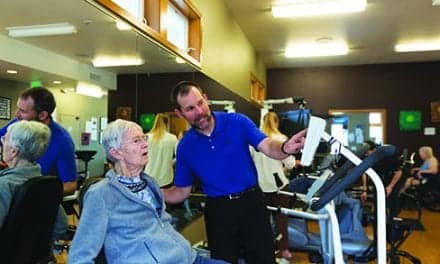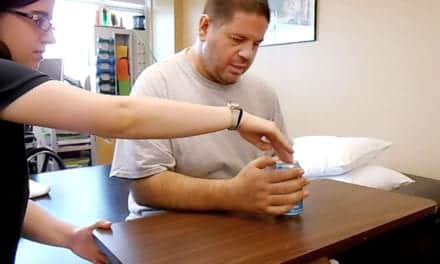BIONIK Laboratories Corp announces its unique position to meet the increased recovery demands from stroke patients who have suffered from a severe case of COVID-19.
According to a recent study on the impact of COVID-19 on neurological events, more than 80% of patients hospitalized with COVID-19 have had neurologic symptoms at some point in the course of their disease, including stroke. In looking at ischemic stroke in COVID-19, patients who experienced severe illness from a COVID-19 diagnosis saw a 6% increase in the incidences of stroke occurring 1-3 weeks post-onset symptoms.
Through its line of InMotion Robots, BIONIK offers evidence-based technologies for patient-adept therapy to stroke patients that are intended to restore upper-extremity motor control for a broad range of neurological conditions and recovery stages.
Recovery and treatment for patients following a stroke with a positive COVID test requires an emphasis on safety procedures, including maintaining distance in between caregivers and patients along with strict infection control. While human touch has long been a hallmark of modern medicine, the InMotion Robotic Systems help hospitals and outpatient facilities administer targeted therapy for stroke patients, while removing the amount of direct contact needed as clinicians guide and oversee the robot’s movements with patients.
Success with MossRehab
BIONIK has already seen success with InMotion systems utilized for stroke patients previously diagnosed with COVID-19. The company’s robot was integrated into Einstein Healthcare Network’s MossRehab’s Core+ Unit, a rehabilitation space for patients infected with or recovering from COVID-19 that require inpatient rehabilitation to return to their communities.
The CORE+ Unit is in a dedicated section of MossRehab Elkins Park, a provider of physical medicine and rehabilitation in the Philadelphia region, where patients have their own rooms, dedicated staff, stringent PPE requirements, and transportation protocols to reduce risk of infection.
“Following a stroke, patients need to begin their recovery journey immediately to strengthen their brain’s neuroplasticity. With BIONIK’s InMotion devices, we’re able to increase the quantity and the quality of movements done in each therapy session. The robot assists with every movement and provides the additional support to help patients overcome any movement obstacles they may face along the way, making it an ideal option for the recovery needs of all stroke patients, but especially those who may test positive for COVID-19.”
— Richard Russo, Jr, Chief Financial Officer and Interim Chief Executive Officer of BIONIK
InMotion robotic therapy systems are used regularly in more than 15 countries to help stroke survivors and those with other neurological conditions regain arm movement by training shoulder protraction/retraction, flexion/extension, abduction/adduction, internal/external rotation and elbow flexion/extension. InMotion Robots guide the patient through specific tasks, often completing upwards of 1,000 movements per hour, in an effort to improve motor control of the arm by increasing strength, range of motion and coordination, and assisting with the provision of efficient, effective and intensive sensorimotor therapy.
[Source(s): BIONIK Laboratories Corp, Business Wire]





